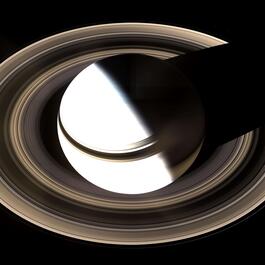
Silicon Valley Astronomy Lectures
Listen to exciting, non-technical talks on some of the most interesting developments in astronomy and space science. Founded in 1999, the Silicon Valley Astronomy Lectures are presented on six Wednesday evenings during each school year at Foothill College, in the heart of California's Silicon Valley. Speakers include a wide range of noted scientists, explaining astronomical developments in everyday language. The series is organized and moderated by Foothill's astronomy instructor emeritus Andrew Fraknoi and jointly sponsored by the Foothill College Physical Science, Math, and Engineering Division, the SETI Institute, the Astronomical Society of the Pacific, and the University of California Observatories (including the Lick Observatory.)
Show episodes
A Nontechnical talk by Dr. Steven Kahn (University of California, Berkeley) Oct. 8, 2025 The amazing Vera Rubin Observatory is a unique astronomy facility just built in Chile, with the largest digital camera in the world, designed to provide a time-lapse “movie” of the entire sky from the Earth’s southern hemisphere.
A Talk by Dr. Oliver White (SETI Institute) May 28, 2025 Ten years ago, the New Horizons spacecraft flew by the Pluto system and revealed an unexpectedly diverse range of landscapes on that dwarf planet and its largest moon Charon -- implying much more complex geological histories for these distant worlds than anyone e

New Worlds: Analyzing the Atmospheres of Exoplanets with the James Webb Space Telescope
Non-technical Talk by Prof. Jonathan Fortney (U. of California, Santa Cruz) Apr. 9, 2025 Over 6000 planets have now been found around other stars, but we only have information about what their atmospheres are like for a few dozen. NASA"s powerful James Webb Space Telescope (JWST), which features a 20-foot mirror in s

Copernicus 4.0: How the Views of Earth's Importance and the Search for Life are Changing
Mar. 5, 2025 Dr. Simon Steel (SETI Institute) Dr. Steel discusses the Copernican revolution and how it changed humanity"s view of its place in the universe. He then talked about other "Copernican" discoveries that displaced us from a central perch, including the revision of our place in the Galaxy, the discovery of o
Jan. 29, 2025 Dr. Darlene Lim (NASA Ames Research Center) NASA"s Volatiles Investigating Polar Exploration Rover (VIPER) is a planned mission to go to the South Pole of the Moon and get a close-up view of the locations that can sustain water ice – ice that could eventually be harvested to support human exploration on t
Nov. 13, 2024 Dr. Dan Coe (Space Telescope Science Institute) The Webb Telescope was designed to look back in time, to study the first generation of stars, and reveal our cosmic origins. Now in its second year of operation, JWST has already brought us tantalizingly close to our dream of seeing those first stars. Dr. Co